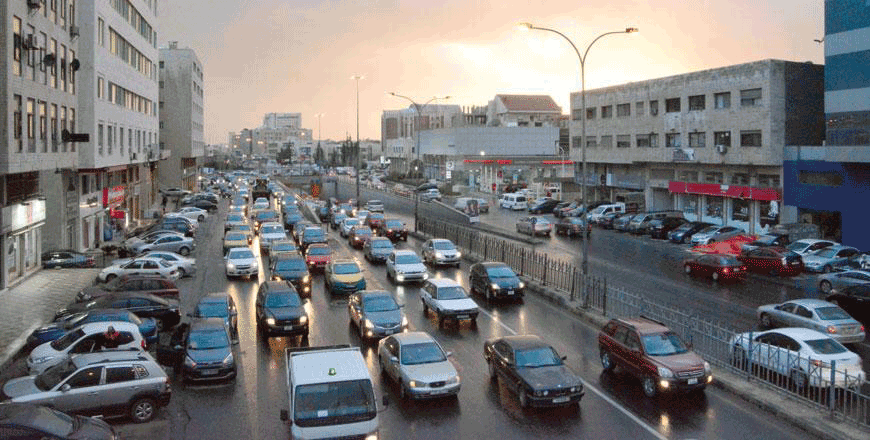You are here
Economists weigh struggles of Jordan’s shadow economy
By Rayya Al Muheisen - Jun 14,2023 - Last updated at Jun 14,2023
AMMAN — In the bustling streets of Jordan, 37-year-old Fadi Najmi drives his truck, adorned with seasonal fruits, vegetables and an array of plants, as he navigates the challenges of the shadow economy.
With no consistent income, Najmi says he carefully selects his produce for freshness and quality, which he sells to support his five children and his mother.
“My truck is my source of income, and a platform to showcase my spirit,” Najmi told The Jordan Times.
“The life of a street vendor is not without its challenges, from unpredictable weather conditions to the constant search for optimal locations,” Najmi said.
Najmi noted that he often strategically parks his truck near crowded areas, where he waits for passers-by to notice his colourful display.
“Each sale helps me support my family,” Najmi said.
Najmi's daily hustle reflects a broader issue faced by many in Jordan — the prevalence of the shadow economy.
Economist Husam Ayesh told The Jordan Times that this underground economic activity is largely a result of the persistently high unemployment rate.
During the first quarter of 2023, the unemployment rate reached 21.9 per cent, according to data from the Department of Statistics.
The shadow economy, also known as the informal or grey economy, is a coping mechanism for people outside of the formal job market, said Ayesh.
Unable to secure steady employment, individuals like Najmi turn to alternative means of livelihood, such as street vending, to sustain themselves and their families, Ayesh added.
The key problem of the shadow economy is a lack of stability, longevity or any sort of long-term protections, which are the benefits that come with regulated employment, the economist said.
Economist Khaled Salameh told The Jordan Times that high unemployment rates often contribute to the growth of the shadow economy.
When formal employment opportunities are limited, individuals turn to informal and unregulated economic activity as a means of generating income, Salameh said.
“The shadow economy becomes an alternative avenue for employment, offering some level of income generation despite the lack of stability and legal protections,” he added.
The shadow economy is also characterised by the absence of taxation and oversight. As a result, governments face difficulties collecting tax revenue from these unreported businesses, Salameh said.
Related Articles
AMMAN — A local financing service provider is offering six-month loan instalments for Eid outfits ahead of holiday celebrations, triggering
AMMAN — Unlicensed rideshare applications in Jordan have the potential to cause major problems for citizens, with tax evasion and the neglec
AMMAN — Economists are warning that Jordan’s middle class is facing extinction, and is nearly devoid of any classification after dwindling r

















